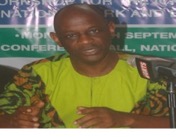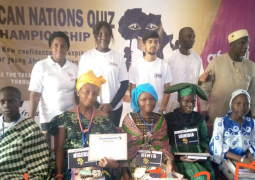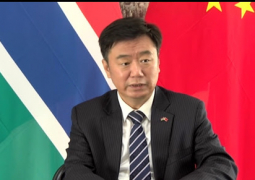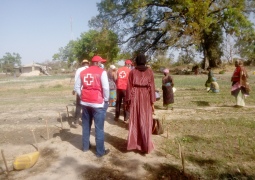
The seminar was divided into three parts, which covers 15 hours of the weekly session from 24th to 26th June, fieldwork supervision starting from 30th June to 14th July which is 45 hours, for at least 10 to 15 days in Situ while the submission of the ethnographic report deadline is 30th September with 30 hours online tutoring.
The ongoing seminar was coordinated by Nicolas Naranjo, Professor of Sociology and Anthropology Department, La Laguna University, Tenerife, Canary Islands, Spain, and Anna Palasinska, Sociologist and International Development Consultant, Tenerife, Canary Island, Spain.
Reacting to the move, Hassoum Ceesay, Director General of NCAC, disclosed that in-house training was basically on how to teach Anthropological practice in an innovative, reflective and intercultural way in a contemporary world.
“Way of transmitting and incorporating the necessary provisions in terms of theoretical, technical and personal for Ethnographic practice goes beyond traditional pedagogy.”
DG Ceesay explained that the training is for them to work with the two professors to strengthen their staffs in capacity building in the two areas “because the work of the NCAC is to premise on Ethnography and Anthropology.
“This is because, in Ethnography, we record cultures and we also exhibit cultures so that’s the very working cardinal of the NCAC. In Anthropology, we deal with festivals, recording of ceremonies, and similar cultural practices.”
The seminar he added, was developed through the workshop where it would expose the key concepts of Anthropology, the steps to follow to design and carry out Ethnographies, based on participant observations and interviews with selected subjects and places, and how to do Ethnographic writing.
However, the seminar methodology is a research-based education on an open and experimental teaching-learning process, where the collaboration of the participants is oriented toward Ethnography.
DG Ceesay reminded that the professors will supervise the fieldwork done by the students in selected topics and areas in The Gambia during June and July 2022 and that the collaboration of professionals and participants would also allow a better understanding of anthropological practices through an intergroup, inter-linguistic and intercultural exchange.
“So this Anthropological practice is that the students will learn to obtain first-hand information, to interact with the social reality to be analysed, and learn to observe, record, systematise and research. This is all in tandem with the national development plan.”
Both Professor Nicolas Naranjo, and Anna Palasinska, dilated on the objectives of the seminar, which is meant for learning the Anthropological key concepts to promote the study of the culture of The Gambia as well as apply Anthropological tools to collect, codify and synthesise cultural information in group tasks, among others.
Read Other Articles In National News

Yundum Barracks School retains TAKE-M African Nations Quiz contest
Oct 3, 2023, 11:28 AM




